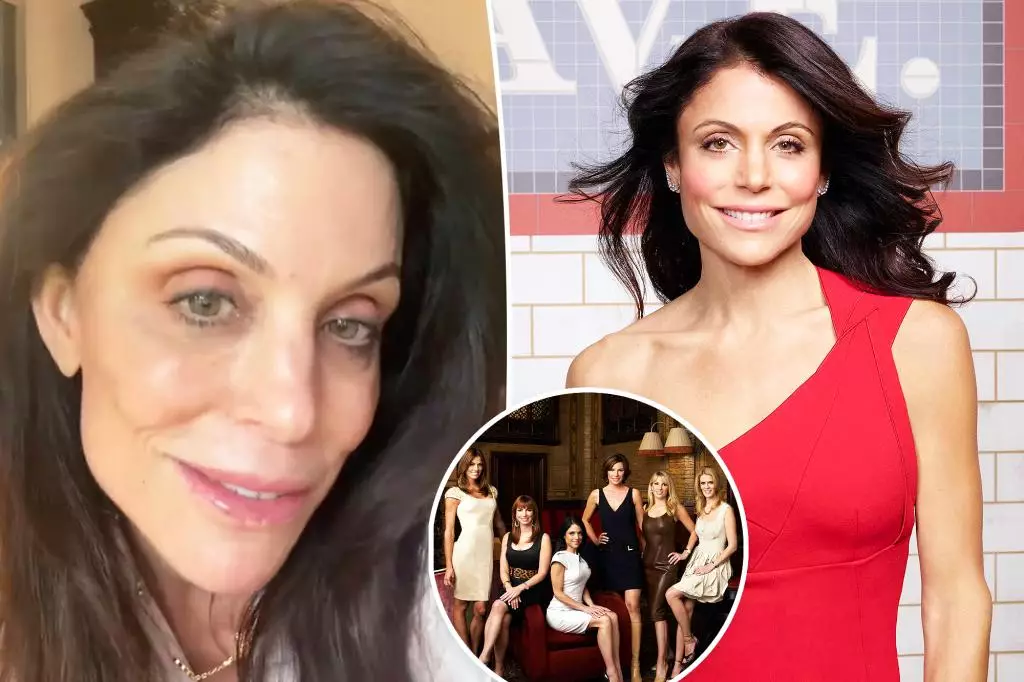Bethenny Frankel recently shared her thoughts on the cancellation of “The Real Housewives of New York City,” a show that has been a significant part of her career and the broader cultural landscape for over a decade. Her reaction, conveyed through a candid TikTok video, encapsulated a bittersweet farewell, labeling the end of the series as “poetic.” This sentiment records not just a personal goodbye but also a farewell to an iconic brand of reality television that has shaped and mirrored the complexities of urban life and social dynamics in New York City.
For Frankel, who often treated the vibrant streets of New York City as her glamorous playground, the show’s cancellation is an acknowledgment of a broader narrative arc—a blend of highs and lows. She referred to “The Real Housewives of New York City” as “an alchemy of disaster,” pointing to the chaotic essence that made the program both captivating and relatable. In doing so, Frankel ensured that viewers remember the authenticity the show fostered; a flawed collection of strong-willed women navigating the labyrinth of urban existence, where imperfection was not only accepted but celebrated.
The Missteps of Curation and Idealization
Despite the groundbreaking appeal of the show, Frankel exclaimed that it ultimately fell prey to the pitfalls of over-polishing and misrepresentation. She criticized the network for attempting to create a “glossy, curated version” of New York City, suggesting that in its endeavor to please a broader audience, it alienated the very essence that made the original series successful. This commentary brings to light a crucial issue in the evolution of reality television: the struggle between authenticity and marketability.
Historically, “The Real Housewives” franchise thrived on the raw, unfiltered personalities of its cast, and Frankel positioned herself as a charismatic embodiment of that ideal. However, she argued that the network’s recent casting choices—highlighting a lineup that included industry insiders and polished figures—moved away from the authenticity that allowed fans to connect with the real-life dramas of women who were genuinely flawed, human, and relatable.
Frankel’s critique is more than an opinion; it is a reflection of a common tension in media where the lines between reality and performance often blur, and the mandate of entertainment occasionally overshadows genuine human experience.
The Future of Reality Television
While the show’s future remains uncertain, with whispers of potential revivals on the horizon, Frankel’s insights underscore a broader conversation regarding the fate of reality television. The insiders’ comment that “We think there’s still life in it” encapsulates the industry’s recognition of reality TV’s magnetic pull despite its current setbacks. Yet, fans have learned to temper excitement with caution, as many beloved shows have taken years to find their footing again.
In juxtaposing the present with the past, we should ponder whether the show could benefit from returning to its roots, embracing genuine chaos over a structured narrative meant to satirize or glamorize experiences. Authenticity remains a powerful currency in a saturated television landscape.
Personal Transformations and New Beginnings
Beyond the show, Frankel is experiencing a personal metamorphosis, announcing her move from New York City to Florida—a shift that symbolizes both a literal and metaphorical departure from the past. This relocation was sparked by the challenges of raising her daughter, Bryn, in a high-pressured environment, leading to a decision that prioritizes family wellness over urban allure.
As she navigates new landscapes, both literally and metaphorically, Frankel’s journey represents a larger trend in which individuals seek balance over the chaos often epitomized in reality television narratives. Choosing tranquility and a fresh start invites viewers to reevaluate their own lives in the context of societal pressures and personal happiness.
In reflecting on these changing tides, it’s clear that while “The Real Housewives of New York City” may have closed a chapter, the discussions it sparked and the authenticity it celebrated remain potent reminders of both the vulnerabilities and strengths inherent in our shared human experience.

